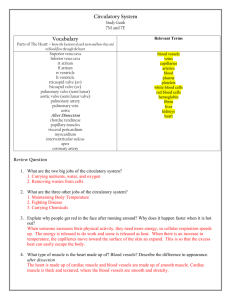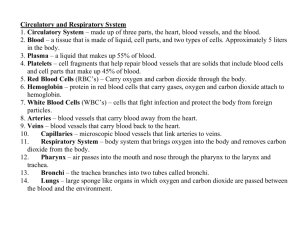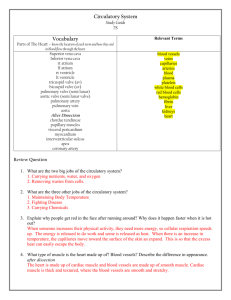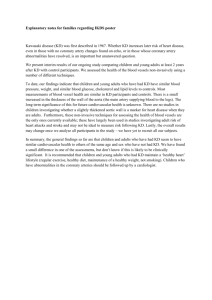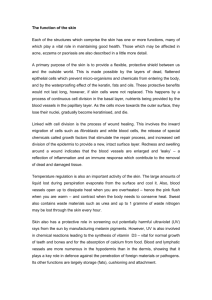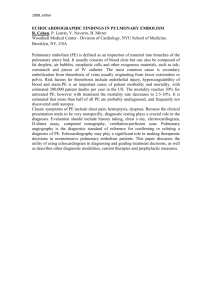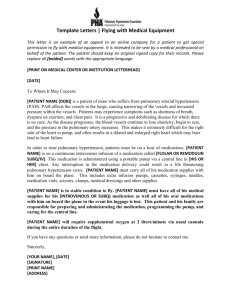Content
advertisement
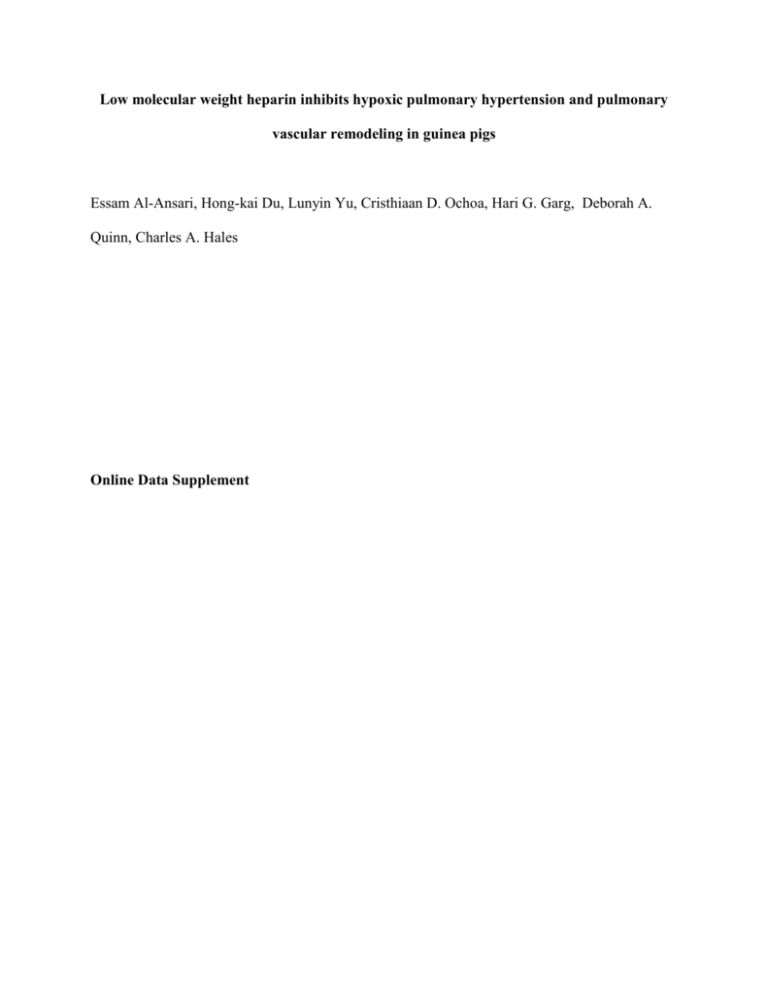
Low molecular weight heparin inhibits hypoxic pulmonary hypertension and pulmonary vascular remodeling in guinea pigs Essam Al-Ansari, Hong-kai Du, Lunyin Yu, Cristhiaan D. Ochoa, Hari G. Garg, Deborah A. Quinn, Charles A. Hales Online Data Supplement Histological grading of pulmonary hypertension The infusion pressure for the pulmonary artery was 95 cm H2O, and 25 cm H2O for the trachea. The animals were sacrificed by an overdose of interperitoneal ketamine and diazepam. The heart, lungs, and trachea were removed en bloc. A polyethylene catheter (PE 205) was placed into the pulmonary artery, and another catheter into the trachea. This allowed for a simultaneous fixing of the lungs using 10% buffered formalin. To avoid pulmonary venules, only those vessels landmarked to airway structures and containing both internal and external elastic laminae were considered. We measured the diameter of the vessels (distance between external elastic lamina) and the medial wall thickness (distance between the internal elastic lamina and the external elastic lamina) by using an ocular micrometer. Vessels were considered thick-walled if they contained an internal and external lamina for greater than 50% of the circumference of the vessel. The percent of thick-walled vessels was expressed as the number of thick-walled intra-acinar vessels divided by the number of thick- plus thin-walled vessels ×100. Percent wall thickness was defined as the medial wall thickness divided by the diameter of the vessel ×100. The left ventricular wall plus the septum (LV+S) were weighed separately after they were left to dry at 90 0 C for 72 hours. We assessed right ventricular hypertrophy by measuring the ratio of the dry (RV) free wall weight to the dry (LV+S) weight. Catheters placement and Hemodynamic Measurements We confirmed the position of the catheter by the pulse tracing on an oscilloscope. In order to measure the cardiac output by thermodilution, we placed a 1.5 Fr (model EX 121003, American Edwards Laboratories, Irving, CA) thermal dilution probe into the thoracic aorta through a right internal carotid artery cutdown. To measure the hematocrit, blood was immediately centrifuged 1 in microcapillary tubes for 3 minutes using Autocrit (Model 0574; Clay-Adams Inc, Parsippany, N.J). Western Blot Analysis of p27 Total cell lysates were obtained from harvested cells. Antibodies included p21 rabbit polyclonal antibody (C-19) (Santa Cruz Biotechnology, Santa Cruz, CA), p27 mouse monoclonal antibody (clone 57) (BD Biosciences Pharmingen, San Diego, CA) and GAPDH mouse monoclonal antibody (clone 6C5) (Research Diagnostics, Inc., Flanders, NJ). 2


